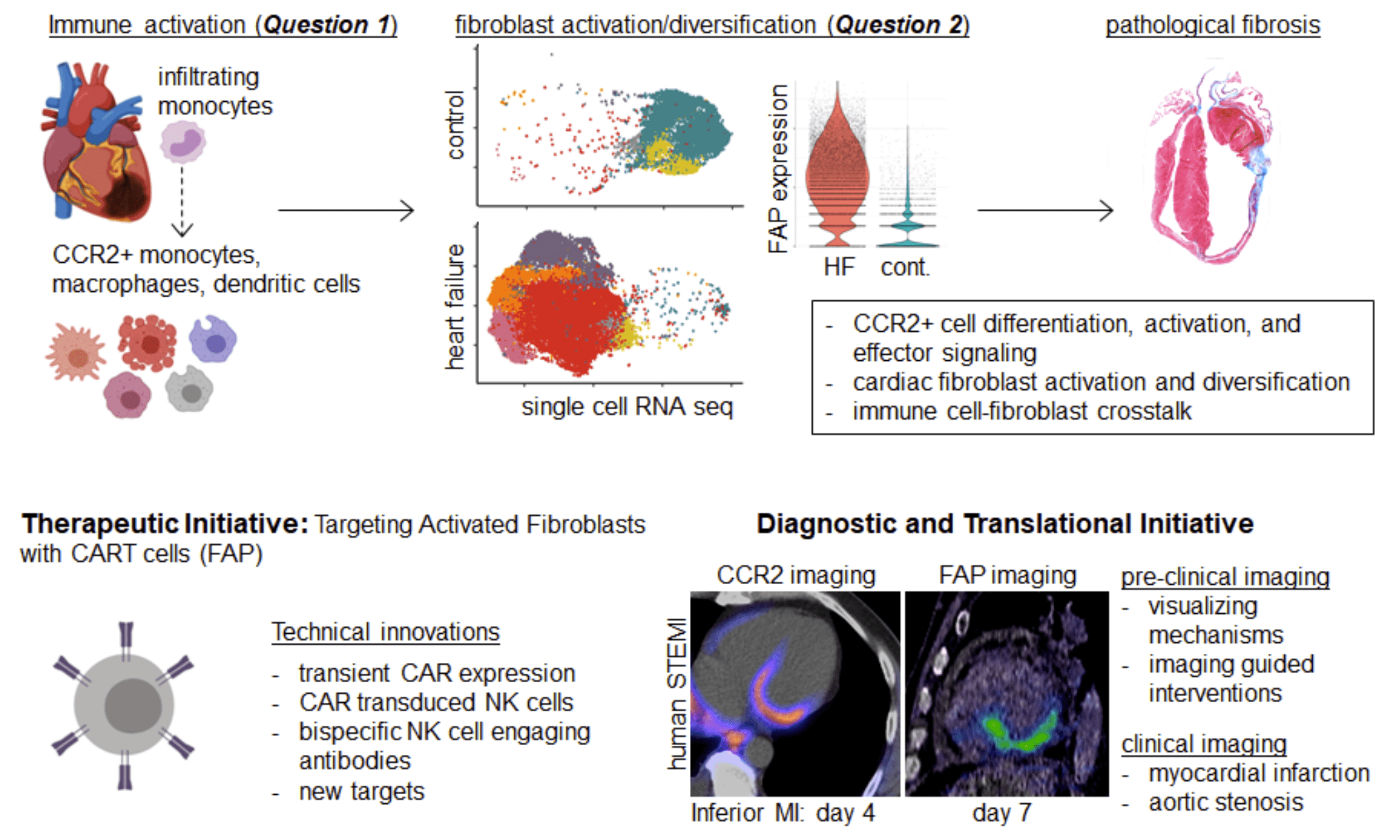Research Plan
We have structured the IMMUNO-FIB HF network to address the core questions of how CCR2+ monocytes, macrophages and dendritic cells are specified, activated, and instruct the differentiation of quiescent cardiac fibroblasts into pathogenic cell types. Furthermore, we will define the molecular determinants that govern cardiac fibroblast fate decisions. In parallel, we will undertake translational initiatives focused on developing diagnostic and therapeutic tools to visualize and target this inflammatory-fibrosis axis.
Project Summary
Inflammation and fibrosis represent cardinal hallmarks of myocardial remodeling and heart failure progression. Until recently, the exact cell types that mediate these important pathological processes were not well defined. Members of this network have identified an inflammatory-fibrosis axis comprised of chemokine C–C motif receptor-2 (CCR2) expressing monocytes and macrophages and activated fibroblasts expressing fibroblast activation protein (FAP) that are essential for the development and progression of heart failure in animal models.

Overarching Goals
- Establish the molecular basis by which myocardial inflammation orchestrates key elements of adverse left ventricular (LV) remodeling including myocardial fibrosis, translate molecular imaging strategies that will visualize mechanistic elements relevant in both pre-clinical disease models and humans, and develop therapeutic approaches that limit and/or reverse pathological cardiac fibrosis (Fig. 1);
- Accelerate scientific breakthroughs and innovation through team science engendered by the network and;
- Generate a multi-disciplinary training program in immune-cardiology to develop the next generation of scientists. We believe that these mechanistic and translational studies will identify new opportunities to improve the longevity and health of patients with LV remodeling and heart failure. Moreover, the network will train a multi-disciplinary workforce to advance and apply this science and lay the foundation for future training programs in cardio-immunology. These outcomes will advance the mission of the Leducq Foundation to “improve human health through international efforts to combat cardiovascular disease and stroke.”
